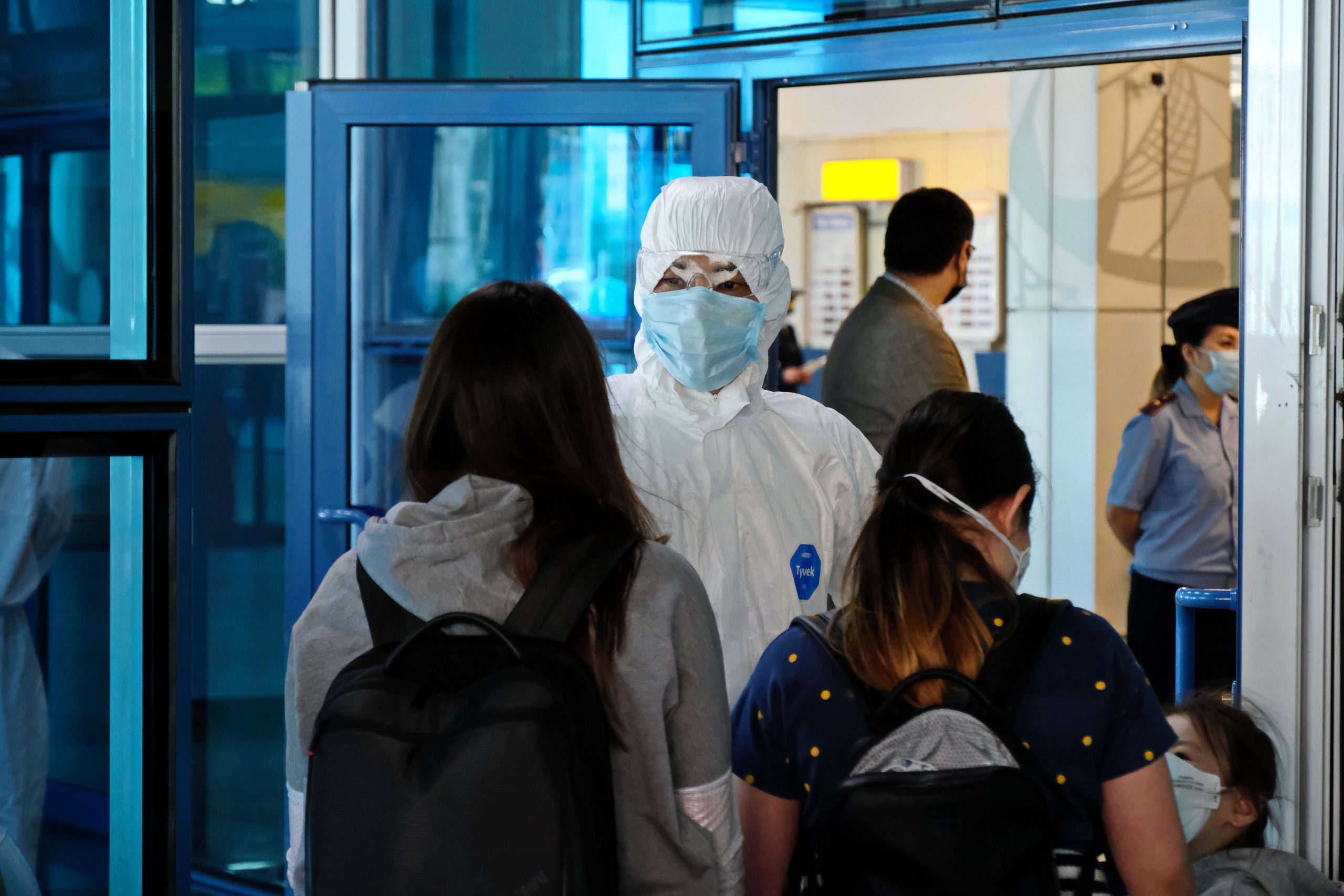The Critical Mass Reports on “Contaminated Trust” during the COVID-19 Pandemic
Over one million citizens of Kazakhstan have tested positive for Covid-19 since March 2020. With the delivery of the Russian Sputnik-V vaccine in February and development of a Kazakh vaccination QVac, 41.5% of the population are now fully vaccinated. Nonetheless many people remain vaccine hesitant, with disinformation and misinformation circulating about the virus and vaccine in the Kazakh media.
On December 13, 2021, The Critical Mass (TCM) released a new research report, “Contaminated Trust: Public Health Disinformation and Its Societal Impacts in Georgia, Kazakhstan and Ukraine,” which provides front-line perspectives on how medical disinformation impacts healthcare decision-making in Georgia, Kazakhstan, and Ukraine. The Critical Mass, with support from the U.S. Department of State Global Engagement Center, used a mixed-methods research design consisting of a literature review, media diaries, in-depth interviews, and online-media content analysis. They conducted in-depth interviews with media, medical, and civil society leaders about the professional and personal impacts perpetrated by a variety of disinformation disseminators. Some of these are associated with the Russian government and others as affiliated with anti-Western or anti-liberal political, economic, and commercial interests. The team presented preliminary findings from this report at a webinar hosted by the Oxus Society in June.
Analysis of expert interviews, media content analysis, and media diaries from participants in TCM’s study found that political infighting and lack of access to trustworthy information drive citizens to seek out non-traditional media sources, social media, and other closed networking groups on platforms such as Facebook, YouTube, Instagram, Telegram, and WhatsApp.
The report finds that news from the traditional media is highly technical. As a result, misinformation and disinformation messages using simple language are more broadly consumed and shared. “It takes too long to get a reaction from the Ministry of Health, and while they take their time to react, alternative sources of information emerge. If they do not react at all, rumors start to spread. Rumors also prevail in social networks. There is a rule, that if a rumor is confirmed by ten people, it becomes an axiom,” stated one expert. Most experts in Kazakhstan do not believe inaccurate messaging is intentional. But the lack of editorial oversight and fact-checking results in the dissemination of fake news about the virus and vaccine.
This is not just about spreading false information. Such information further undermines trust in a public health system that people already lack faith in due to systematic corruption. With such low levels of trust in healthcare workers, experts reported misinformation has caused a rise in dangerous self-treatments.
What Can be Done?
The report points to a number of ways different stakeholders can address this. experts recommended setting up a single platform with representatives of public health institutions, where an open dialogue could exist between citizens, journalists, and experts. The government should design evidence-based, easy-to-understand public information campaigns about the pandemic. These could complement the existing vaccine chatbot launched by the Red Cross in February.
The government should also take steps to support the embattled public health sector. Experts also recommended the Ministry of Healthcare establish programs for regional medical associations to coordinate with physicians through continuing medical education programs. Better pay and working conditions would help retain more healthcare workers and reduce incentives for corruption. The report suggests that greater efforts could be made in the public health sector to increase transparency. These include documenting and publicizing the research and development process of various technologies, which would build faith in the scientific rigor behind treatments and vaccines. Together, these measures could reduce the spread of misinformation and lead to lower levels of vaccine hesitancy. This will be crucial as the winter months set in.

